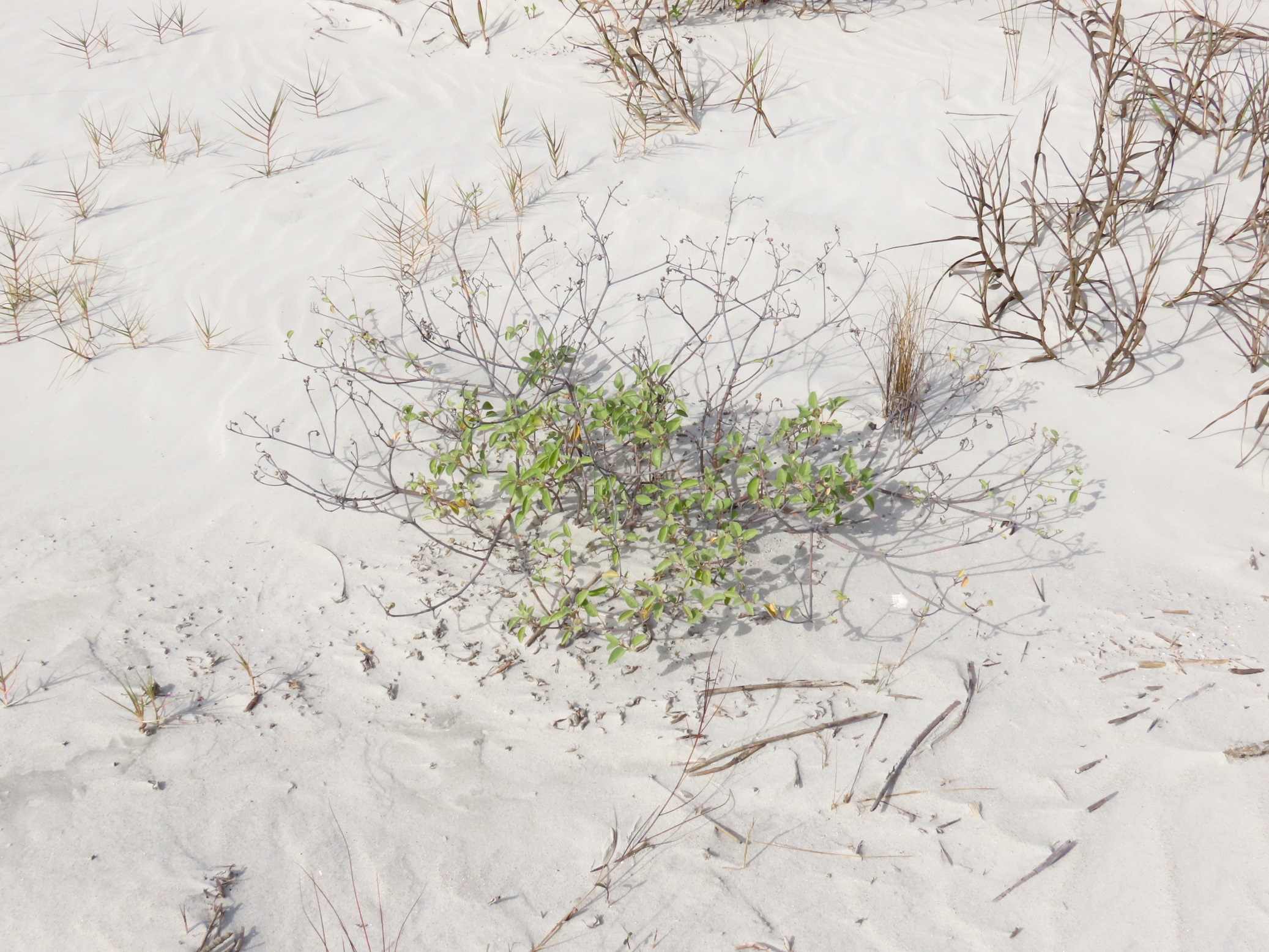
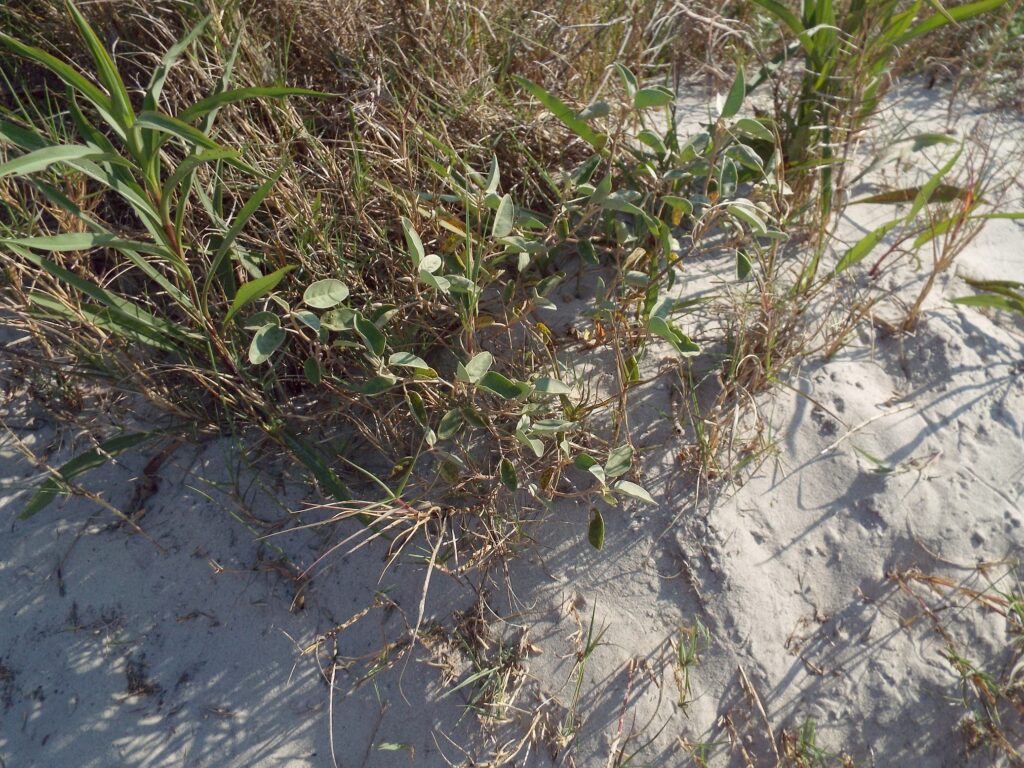
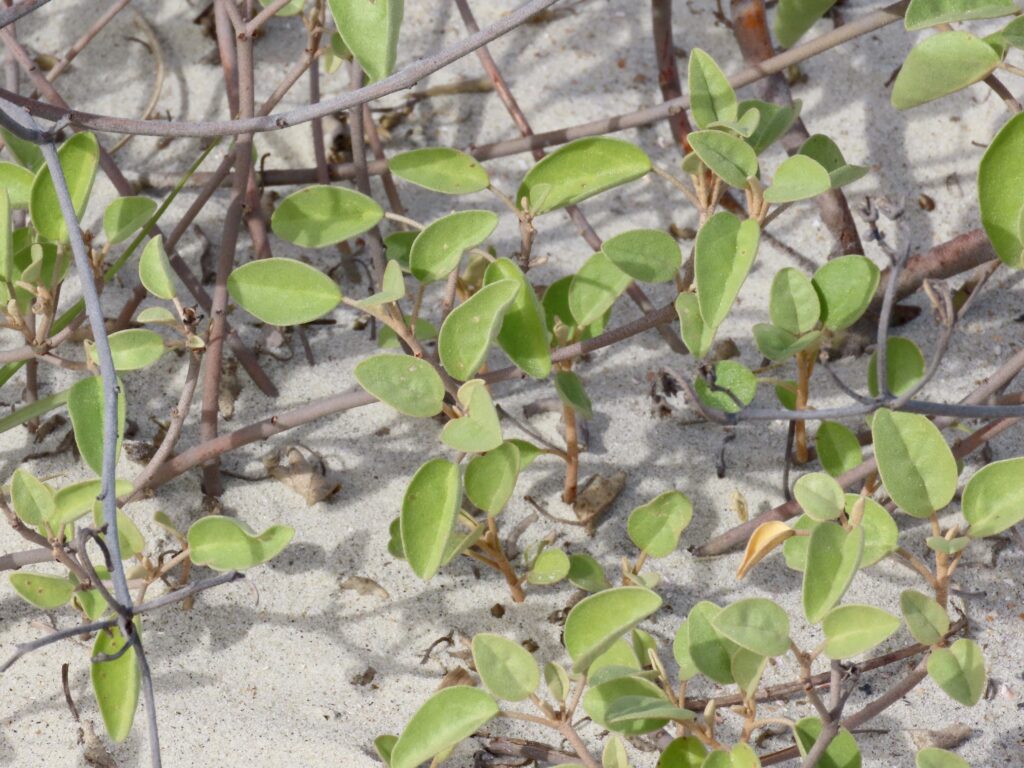
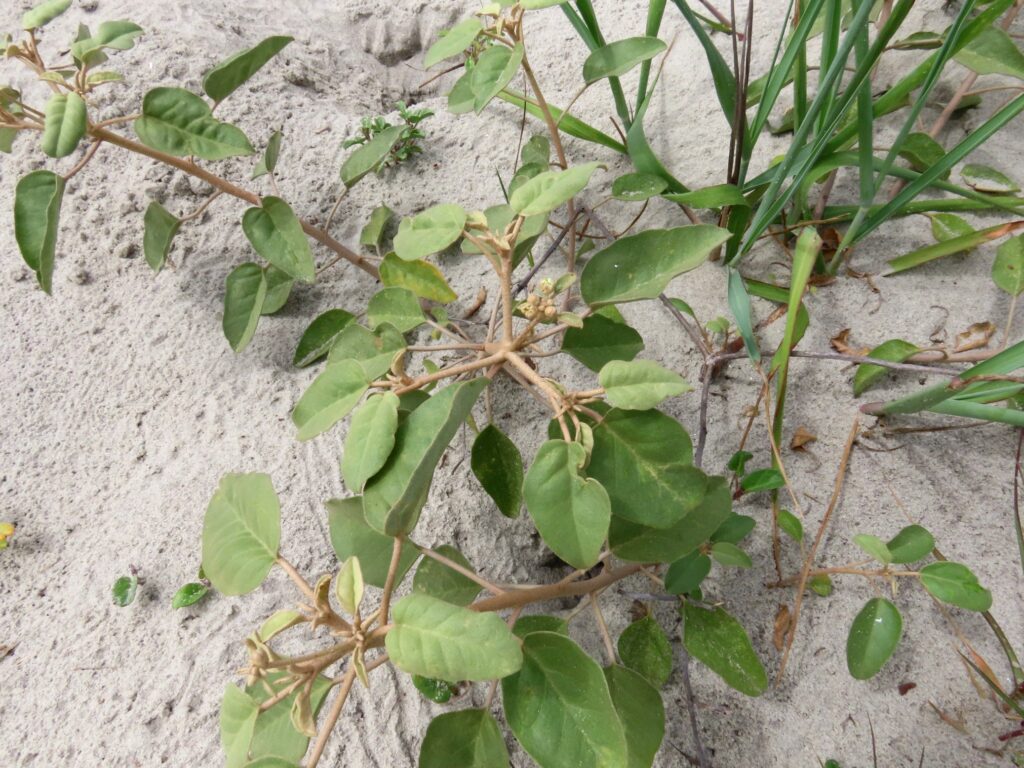
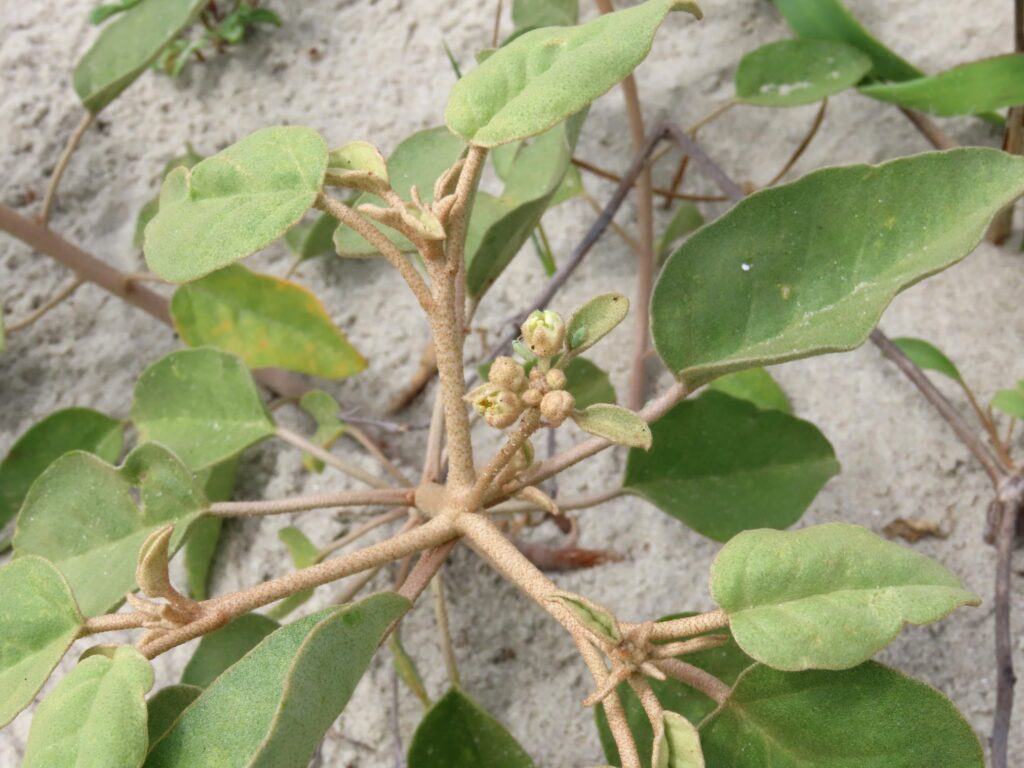
This week for Flora and Fauna Friday it’s the silvery seashore Gulf Croton (Croton punctatus).
Gulf Croton is a small, spreading, perennial shrub growing up to about knee high. It’s one of our beach specialist species, growing along the dunes right up to the front beach. Life on the beach is not a relaxing affair for plants, as it’s one of the harshest environments there is. Everything about a beach-bound plant must be precision tailored towards survival if they want to even stand a chance, and today’s plant is no exception!
Of course, any plant that lives on the beachfront has to be supremely adapted to extreme sunlight, droughty soils, constant wind stress, soil fertility extremes and deficits, saltwater inundation, and constant salt spray. Gulf Croton has all of those boxes checked. Its small size and supple branches help it resist the extreme winds of a beachfront and its spreading nature allows it to capitalize on good habitat once established. Gulf Croton’s leaves are thick and leathery, evergreen, and shaped like an inverted teardrop. This lets them reuse their leaves for multiple seasons and pump them full of water as storage for drier times. Gulf Croton is coated from ground to flower in a layer of fine silvery hairs and bronze resin dots. The silvery hairs act like insulation, protecting the plant from excess sunlight and buffering them against temperature swings. The resin dots are a chemical defense, pumped full of disagreeable substances to discourage insects and herbivores from chowing down. Gulf Croton blooms practically year-round and has male and female plants. The constant flowering allows Gulf Croton to take advantage of the stable coastal climate and, given their limited range, the unisexual flowers help them maintain genetic diversity by forcing cross-pollination. The flowers of Gulf Croton are small and innocuous, small silver orbs opening to a golden-green core with nary a petal in sight. Yet, they are still frequented by many pollinators, particularly native bees, as a reliable source of pollen and nectar.